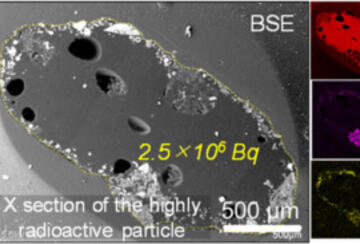CISAC - News Page
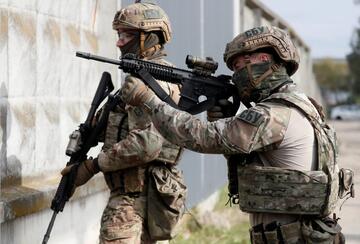
Ukraine finally has a chance to create a strong counterintelligence service and shed the Soviet standards of the old KGB. Are Ukrainian MPs ready to take responsibility and vote for such a security service?

Currently, commercial spent fuel remains at 75 sites across the US, including 18 “orphaned sites,” where it has been left at decommissioned reactor sites. Local communities are increasingly concerned about this legacy of nuclear power production and are seeking alternative strategies.
FSI Deputy Director and Senior Fellow Kathryn Stoner discusses Russia’s economy, its international influence, and why the characterization of Russia as weak is outdated.
Apocalypse When?
The Doomsday Clock is a metaphor. It moves closer to midnight depending on how close we are to human-made global catastrophe through climate change, nuclear weapons, and pandemics fueled by misinformation and failed leadership. Y’know, the typical folly of humankind. Find out what time it is from two members of the Bulletin of Atomic Scientists.

China may now be able to prevail in cross-strait contingencies even if the United States intervenes in Taiwan’s defense, Chinese security expert Oriana Skylar Mastro tells the U.S.-China Economic and Security Review Commission. Changes must be made to U.S. military capabilities, not U.S. policy, she argues.
The Fukushima Daiichi Nuclear Power Plant released particles containing radioactive cesium during the 2011 nuclear disaster. New research published in Science of the Total Environment shows that some particles were larger and contained much higher levels of activity than was previously known.
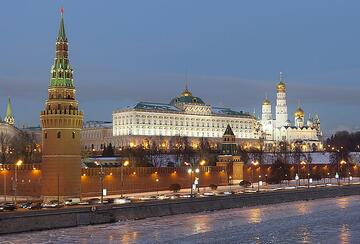
Since November 2020, the world has watched the presidential transition in the United States with unease. After a violent mob of Trump supporters stormed the U.S. Capitol on Jan. 6 in an effort to overturn Joe Biden’s election, headlines around the world questioned, for the first time, whether a democratic transfer of power would occur as expected.

Will Insurrection Lead to Terrorism?
Will Insurrection Lead to Terrorism?
Reading history for lessons about what happens when agitators go underground.

Coronavirus variants are spreading in the United States, threatening to spark yet a new surge. Is there a good defense? NPR health correspondent Rob Stein talks to CISAC Senior Fellow David Relman.

As it is currently organized, the U.S. government is ill-equipped to deal with the growing number of national security challenges that exist at the intersection of commercial and defense technology. Innovation opportunities are slipping between Washington’s organizational gaps, and America’s enemies are too.
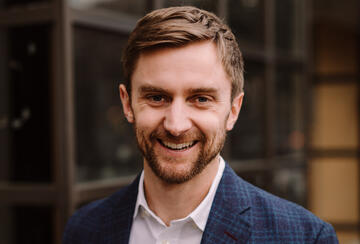
In 1957, Poland proposed the Rapacki Plan for the denuclearisation of Central Europe. While North Atlantic Treaty Organization (NATO) members attacked the initiative, Canada viewed it as a means to ease Cold War tensions. Canada’s efforts alarmed Western allies and helped lead to a second Rapacki Plan.
The U.S. and Russia on Wednesday extended the only remaining treaty that limits the deployment of nuclear weapons. But did the agreement go far enough? Rose Gottemoeller, a distinguished lecturer at Stanford University who served as undersecretary of state for arms control and international security during the Obama administration, joins Nick Schifrin.

Moscow is more capable of disrupting global world order than it is given credit for, FSI Deputy Director Kathryn Stoner argues.
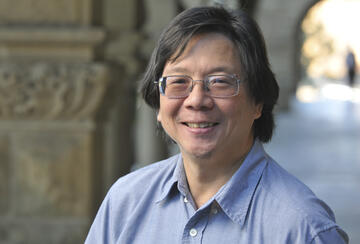
In 2019, as the Department of Defense considered adopting AI ethics principles, the Defense Innovation Unit held a series of meetings across the U.S. to gather opinions from experts and the public. Stanford University professor Herb Lin argued that he was concerned about people trusting AI too easily.
News that the Biden administration will delay the seating of several Trump appointees to defense advisory boards is a welcome signal that incoming leaders recognize these groups are essential, not just patronage jobs. But the review needs to go much further than that.

Dr. David Relman, an esteemed microbiologist, kept returning to the same conclusion as he fielded questions as a guest at Rep. Jerry McNerney’s virtual town hall. No matter what your fears or concerns, getting a vaccine, Relman said, is far better and safer than getting the virus.
Trying to Box in Biden on Arms Control
Former Trump officials complain that the new president doesn’t want what they failed to achieve.

Extending the New Strategic Arms Reduction Treaty, or New START, with Russia was one of President Biden’s first foreign policy acts after he took the oath of office on Jan. 20. The treaty would have otherwise ended on Feb. 5, leaving the U.S. and Russia without any agreed upon limits on their strategic nuclear forces for the first time since 1972.

In the first of a two-part Q&A, Stanford political scientist Kathryn Stoner discusses how Biden’s foreign policy in Russia is a departure from the Trump administration.
Saving the Open Skies Treaty
Last November, the Trump administration unwisely withdrew the United States from the Open Skies Treaty. Earlier this year, the Russian government said it will take steps to follow suit.

The Biden Presidency and Ukraine
The Biden Presidency and Ukraine
In a December 2020 New York Times interview, Ukrainian President Volodymyr Zelensky welcomed Joe Biden’s election as U.S. president. Zelensky observed that Biden “knows Ukraine better than the previous president” and “will really help strengthen relations, help settle the war in Donbas, and end the occupation of our territory.”




